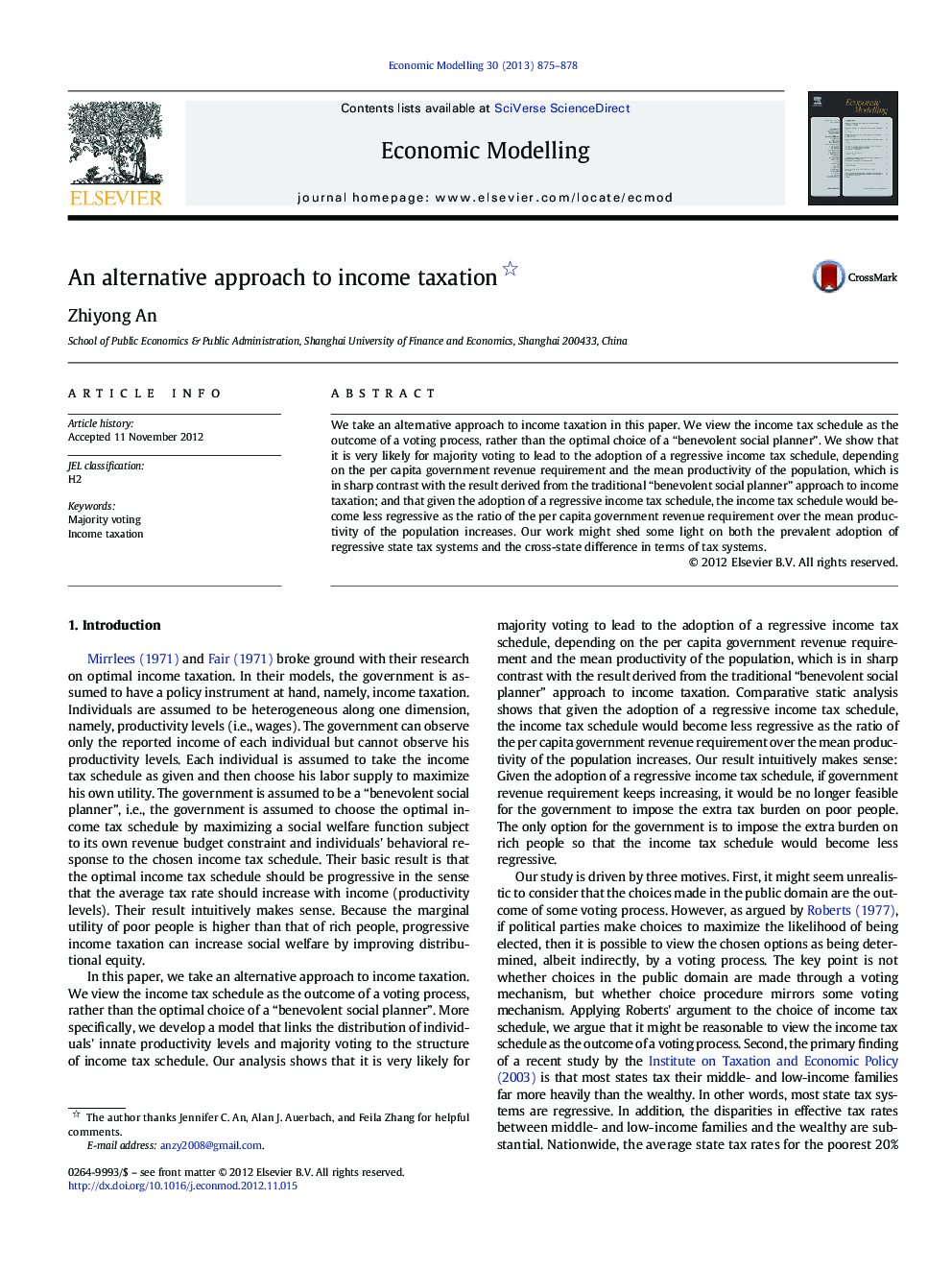| Article ID | Journal | Published Year | Pages | File Type |
|---|---|---|---|---|
| 5054771 | Economic Modelling | 2013 | 4 Pages |
We take an alternative approach to income taxation in this paper. We view the income tax schedule as the outcome of a voting process, rather than the optimal choice of a “benevolent social planner”. We show that it is very likely for majority voting to lead to the adoption of a regressive income tax schedule, depending on the per capita government revenue requirement and the mean productivity of the population, which is in sharp contrast with the result derived from the traditional “benevolent social planner” approach to income taxation; and that given the adoption of a regressive income tax schedule, the income tax schedule would become less regressive as the ratio of the per capita government revenue requirement over the mean productivity of the population increases. Our work might shed some light on both the prevalent adoption of regressive state tax systems and the cross-state difference in terms of tax systems.
⺠We view the income tax schedule as the outcome of a voting process. ⺠We show that the voted outcome is very likely to be regressive. ⺠We show that regressivity depends on government revenue requirement and mean productivity. ⺠Our work might shed some light on the prevalent adoption of regressive state tax systems. ⺠Our work might also shed some light on the cross-state difference in terms of tax systems.
